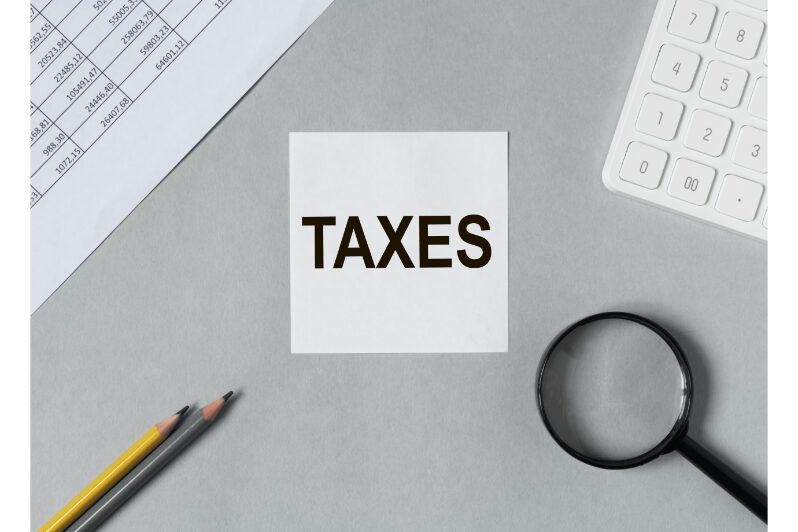Individuals whose economic activity needs a license or license from the government will be required to pay corporate tax on their revenue derived from sources within the UAE corporate tax. The legal entities with UAE incorporation or whose management and control are based there would be liable to Corporate Tax on their international revenue. If companies that are formed outside of the UAE maintain permanent establishments there or receive any revenue from a UAE source, the income would be subject to Corporate Tax.
In light of this, companies registered in the UAE are urged to evaluate their tax requirements and make plans in advance. Businesses would find it helpful to engage with tax consultants in Dubai to guarantee corporate tax compliance. Businesses can seek the assistance of tax advisors to assess whether they are subject to UAE Corporate Tax or not. The types of businesses that would be liable for the corporate tax regime are described in a document that the UAE government has issued for comment. The paper also includes a list of organizations that are free from UAE corporate tax.
The entities exempt from corporate tax in UAE are described in-depth in this article. Read on to learn more:
What is UAE Corporate Tax?
Corporate Tax is a direct tax applied to a corporation’s or other entity’s net income or profit from its operations. In some countries, corporate Tax is known as “Corporate Income Tax ” or “Business Tax.”
A new federal corporate tax system will be implemented in the United Arab Emirates (UAE) with effect from fiscal years commencing on or after 1 June 2023, according to a 31 January 2022 announcement by the MoF of the UAE. Except for Bahrain, the UAE has the minimum corporate income tax rate in the GCC region at 9%.
Also Read : Will UAE Corporate Tax be Applicable to Businesses in Each Emirate?.
Who is Exempted From Corporate Tax?
Those mentioned above are the main guidelines for applying corporate tax. However, there are several exceptions, and the following consists of a list of individuals exempted from UAE Corporate Tax:
1. Government and Government-controlled Companies
The government and companies controlled by the government that engage in activities that are not commercial in nature and are for the social well-being of the general public are free from Corporate Tax. Revenue of the government and/or its owned corporations would be entitled to Corporate Tax if they were engaging in business operations for commercial ends while operating under a trade license.
2. Corporation Engaged in the Extraction of Natural Resources
Under the UAE constitution, an Emirate where the natural resource is located is considered to be the owner of that resource. Companies that extract natural resources must agree with that Emirate and pay taxes at the state level. Since the Corporate Tax is a federal tax, it would not be applied to the revenue made by companies extracting and exploiting natural resources that are subject to Emirate-level taxation.
3. NGOs (non-profits) and PBOs (public benefit organizations)
Charities and public benefit groups collaborate with the government to advance significant societal welfare and neighborhood or group interests. If these organizations engage in such activities, they will submit a request for an exemption from Corporate Tax to the Ministry of Finance. If the application is accepted, the organization will be noted in a Cabinet Decision, and its revenue will not be subject to Corporate Tax. When such organizations engage in commercial endeavors for the benefit of those affiliated with the organizations, Corporate Tax will apply to those organizations’ revenue.
4. Investment Funds
Investment funds are typically set up as limited partnerships rather than corporate companies to maintain tax neutrality for their investors. The Corporate Tax system aims to regard UAE and international investment funds that are set up as unincorporated partnerships as financially transparent, which would place investors in a comparable tax position to if they had invested directly in the fund’s underlying assets.
They are eligible to seek exemption from the corporate tax system through the Federal Tax Authority (FTA). The FTA will authorize tax exemption for investment funds that satisfy their conditions. You can get assistance from Dubai tax advisors to seek a company tax exemption.
5. Government-run or Regulated Private Social Security and Retirement Pension Schemes
The Corporate Tax does not apply to government-run or regulated private social security and retirement pension schemes. If applicable, people must analyze their position based on the abovementioned criteria and proceed appropriately to have proper corporation tax implementation.
Read More : Corporate Tax in UAE : UAE Corporate Tax for Large Multinationals.
Will Holding Corporations in the UAE be Excluded From the Corporate Tax?
Holding corporations will be covered by the MoF corporate tax in most cases. Specific holding company revenue streams, on the other hand, may be excluded. Corporate Tax will likely be exempt from dividends and capital gains earned from certain qualified stockholdings. What constitutes a qualified stake is still uncertain. A minimum amount of shareholding (possibly at least 10% following Pillar Two requirements) and a minimum holding duration are expected to be required to meet a qualifying shareholding.
How May Farahat & Co Assist You?
As a renowned corporate tax advisor in Dubai, we have a team of professionals with vast experience in tax law advising, arbitration, compliance, and litigation. Residents and immigrants in Dubai may rely on our tax consultant in Dubai for sound counsel and up-to-date knowledge of UAE Corporate Tax. Our corporate tax consultant in Dubai, on the other hand, caters to the needs of firms operating in the UAE – whether domestically or internationally. For experienced tax advice services from seasoned tax experts in Dubai, UAE, contact us right now.
